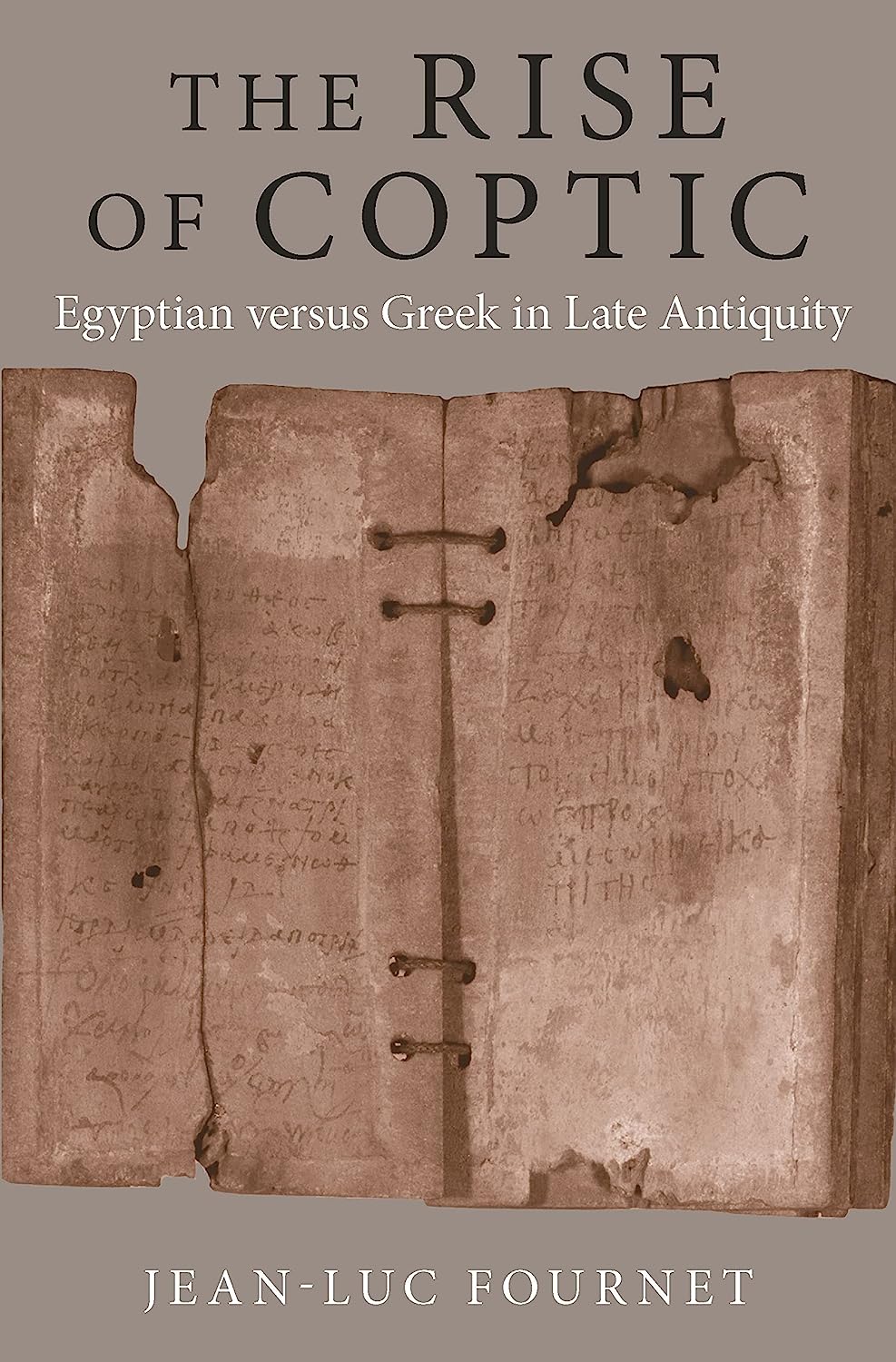
The Rise of Coptic: Egyptian versus Greek in Late Antiquity
Caroline Stone
Jean-Luc Fournet
Princeton University Press, 2020.
The problem of multilingualism seen in modern societies once traditionally monolingual is not new. The book explores the situation in Egypt, where Coptic, the majority language, deriving from Late Egyptian, lost its own script and came to be written in an alphabet borrowed from the Greeks. From the Ptolemaic conquest in 305 BCE to the death of Cleopatra in 30 BCE, Greek dominated as the language of administration and law; thereafter Latin was encouraged, though not imposed. Only shortly before the Arab conquest in 641 CE did Coptic finally become the official language. Fournet, an eminent papyrologist, discusses the relationship between the official language and the vernaculars, and between official and private documents. The slowness of Coptic to achieve dominance is studied in the context of both religion and colonization. The Egyptian climate has allowed a wealth of material to survive. Fournet cites texts in Greek, Coptic, Syriac and Latin, with many excellent illustrations.
—CAROLINE STONE
You may also be interested in...

Book ‘s Take on Mangos Serves Up a Curious Mix of Food and History
Constance L. Kirker and Mary Newman trace mango’s cultural and culinary significance around the world..png?cx=0.45&cy=0.59&cw=382&ch=519.4922937443337)
New Book Decodes Mystery Behind Sixth Century Mosaic Pavement
Jane Chick’s 2024 study on enigmatic Libyan mosaic bridges Late Antiquity Roman and early ecclesiastical art.